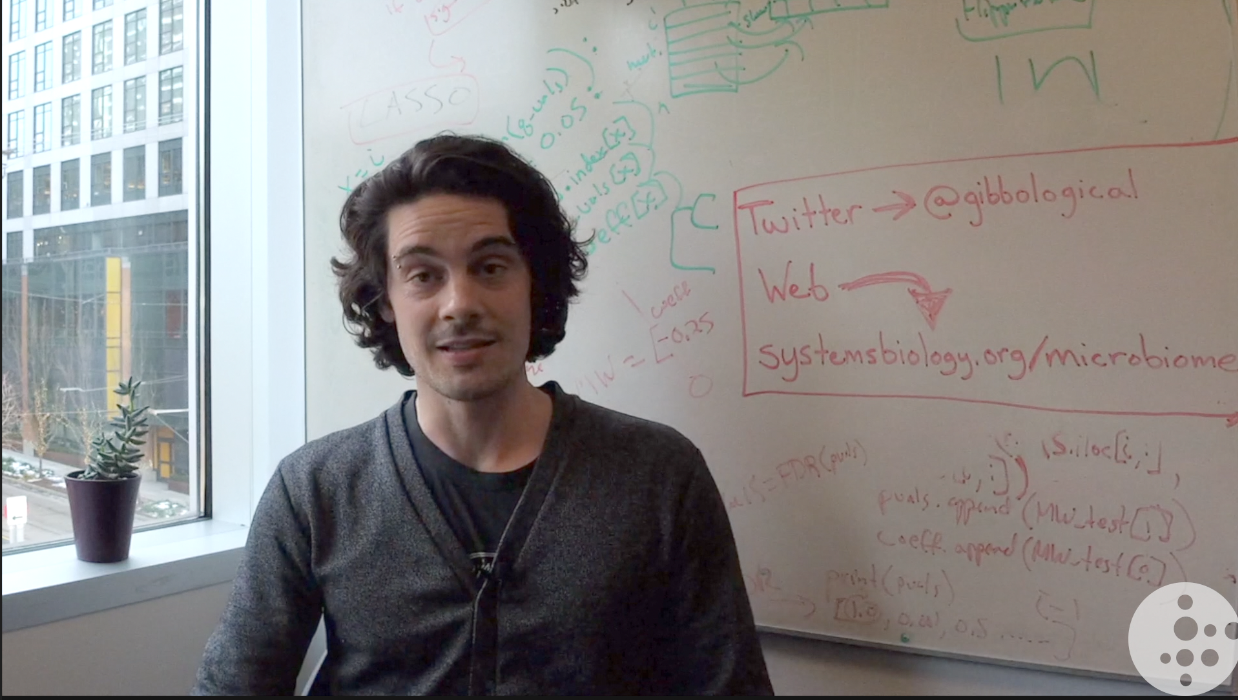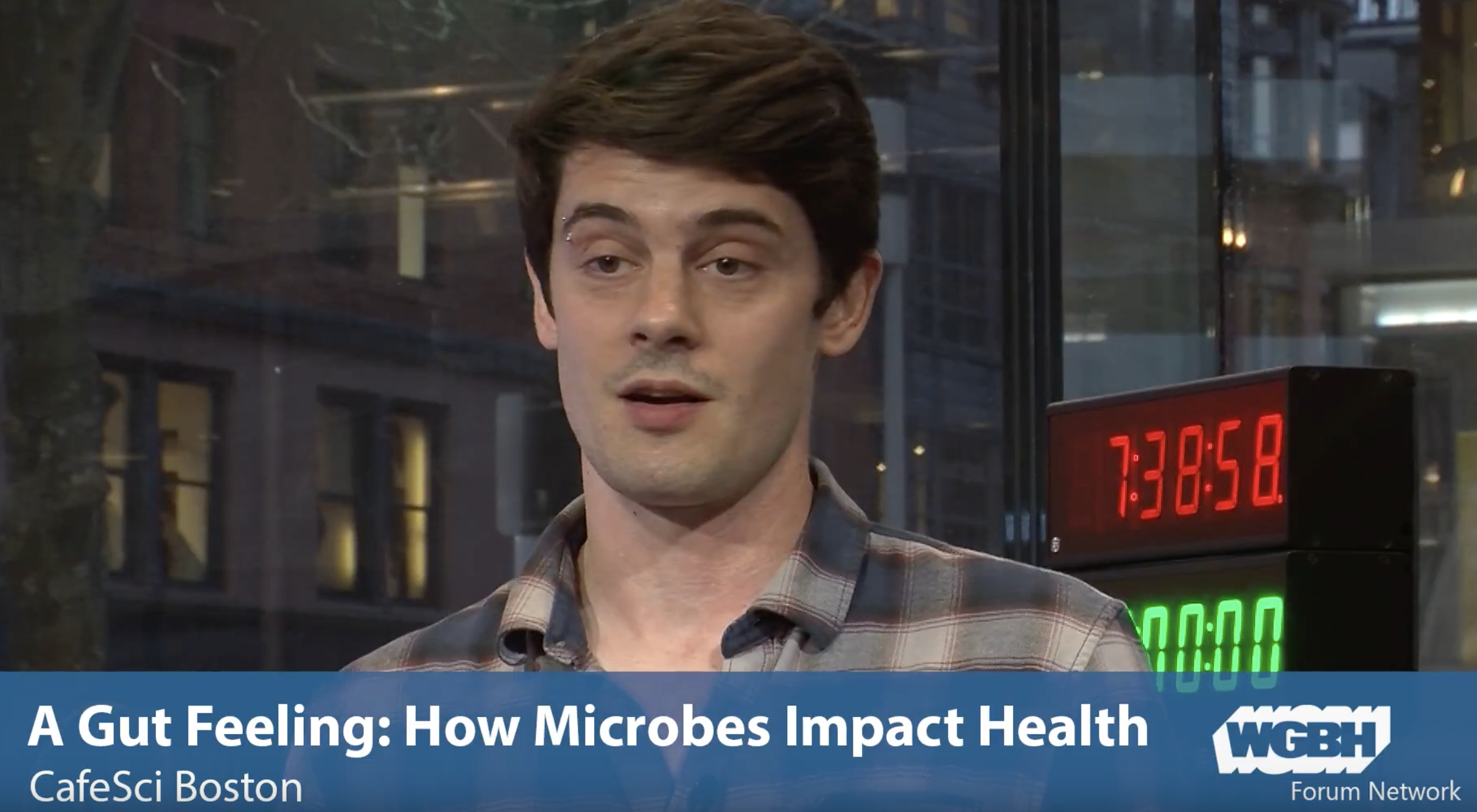This website uses cookies so that we can provide you with the best user experience possible. Cookie information is stored in your browser and performs functions such as recognising you when you return to our website and helping our team to understand which sections of the website you find most interesting and useful.
Hack Your Health: An Evening with Anjali Nayar and Dr. Sean Gibbons
at the Institute for Systems Biology
Hack Your Health: An Evening with Anjali Nayar and Dr. Sean Gibbons
Netflix’s “Hack Your Health: The Secrets of Your Gut” is a documentary that merged gut microbiome experts, four individuals – including a well-known hot dog eating champion – facing personal battles with gastrointestinal health, and a unique, effective visual method of “showing” the gut microbiome in action.
Making Nutrition and Healthcare Personalized, Predictive, and Preventive
Dr. Sean Gibbons is creating a new precision nutrition platform called My Digital Gut that leverages the gut microbiome to make nutrition and healthcare personalized, predictive, and preventive. In an ISB Research Roundtable presentation, Gibbons spoke about My Digital Gut and other microbiome-related projects studied in his lab.

ISB and Seattle Science Foundation Partner to Create Video Series
What are multi-omics? Why does our microbiome matter? What’s the difference between genetics and genomics? What is a digital twin? ISB and Seattle Science Foundation have partnered to create videos answering questions like these and more, showcasing ISB scientists and their work.
Bugs vs. Drugs: How Our Microbiomes Can Explain Our Response to Statins
ISB Assistant Professor Dr. Sean Gibbons talked about the science behind statins in our most recent Research Roundtable virtual presentation. His talk was titled “Bugs vs. Drugs: How Our Unique Gut Microbiomes Shape Our Personalized Responses to Statins.”
Gut Microbiome Composition Predictive of Patient Response to Statins
New ISB research shows that different patient responses to statins can be explained by the variation in the human microbiome. The findings were published in the journal Med, and suggest that microbiome monitoring could be used to help optimize personalized statin treatments.
Dr. Jack Gilbert on the State of the Microbiome Field
In the final ISB-Town Hall Seattle Science Series of 2021, ISB Assistant Professor Dr. Sean Gibbons sat down with UCSD Professor Dr. Jack Gilbert, and the two microbiome experts discussed past research, exciting science happening today, promising products and therapies on the horizon, and much more.

All About the Human Microbiome
The human microbiome is a relatively new area of research, and there are numerous questions surrounding it. What is the human microbiome? Can we change it? Does it make us sick? Keep us well? ISB Assistant Professor and microbiome researcher Dr. Sean Gibbons answers these questions — and many more.

ISB's Dr. Sean Gibbons on the importance of the human microbiome
“This new organ that we’re coming to recognize as the microbiome is part and parcel to the functionality of the whole system, and if it breaks down, if it starts to fall apart, we start to get sick,” said Dr. Sean Gibbons, ISB’s newest faculty member, in a WGBH Forum Network presentation.



